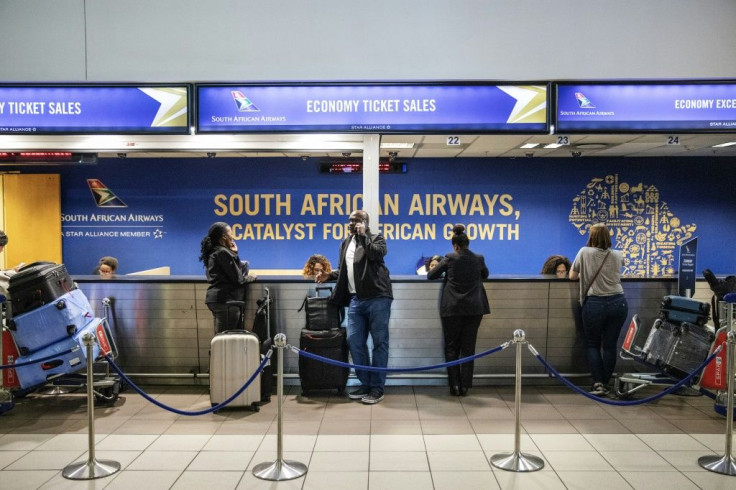South African Airways Strike Called Off After Deal Signed

A costly week-long strike that forced hundreds of flight cancellations ended at South Africa's flag carrier Friday after the airline and unions signed a deal.
"South African Airways (SAA) has reached an agreement with unions to end the industrial action, which began seven days ago," an airline statement said.
Thousands of SAA staff including cabin crew, check-in and ticket personnel, technical and ground staff walked out last Friday after the cash-strapped airline failed to meet a litany of demands, including for higher wages and job in-sourcing.
"We are calling off the strike action ... with immediate effect, due to the fact that we have settled on a wage offer," the National Union of Metal Workers of South Africa (NUMSA) and the South African Cabin Crew Association (SACCA) said in a joint statement.
The troubled airline said it would progressively restore its full flight schedule over the weekend.
"In practical terms, this means that SAA will operate a near normal service on Saturday," it said.
As part of the deal, management and unions agreed to a 5.9 percent wage increase backdated to April, but which would only start to be paid out next March "subject to availability of funding".
The strike was not just about wage increases, the unions said.
"At the center of our demand was to secure changes which would result in the long term sustainability of the SAA group, and assist it to get back onto the path of profitability," they said.
Debt-ridden SAA, which has failed to make a profit since 2011 and survives on government bailouts, had initially refused any salary raise.
The airline needs two billion rand ($136 million) to fund operations through the end of March.
"This deal, particularly the fact that we offered a 5.9 percent salary increase amidst grave financial challenges, is to recognise the company's employees for the important contributions they make to the overall success of the company, economic development, and inbound and outbound tourism," SAA chief executive Zuks Ramasia said.
NUMSA spokeswoman Phakamile Hlubi-Majola addressed striking workers outside the SAA head office telling them that the government "has committed to pay the airline for operational purposes".
"As of this morning, there wasn't even money for salaries for November, but because of you, we have the money," she told the jubilant workers.
Local media had earlier this week cited Public Enterprises Minister Pravin Gordhan warning that the strike was only exacerbating the airline's financial woes.
"SAA doesn't have enough cash to possibly even pay salaries at the end of the month," he was quoted by fin24 as telling lawmakers.
The unions had also demanded a three-year guarantee of job security following an announcement earlier this month by the airline that almost 1,000 employees could lose their jobs as part of a restructuring plan.
SAA said the process to apply to lay off workers will now be deferred to end of January.
The airline, which employs more than 5,000 workers, is Africa's second largest airline after Ethiopian Airlines.
With a fleet of more than 50 aircraft, it flies to more than more 35 domestic and international destinations.
Owing to the strike, SAA had been losing 52 million rand a day as it scrambled to partially restore some flights earlier this week.
South Africa is struggling to get state-owned companies back on track after nine years of corruption and mismanagement under former president Jacob Zuma.
© Copyright AFP 2024. All rights reserved.





















